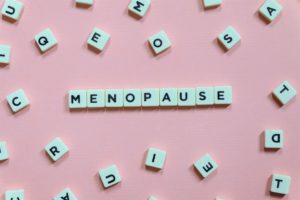
MS and the menopause share some common symptoms including bladder weakness, hot flushes and difficulty sleeping. In fact, there are 20 widely recognised symptoms of menopause are also symptoms of MS. Over the last few weeks both the MS Trust and the MS Society have run articles about the menopause and MS and here we share a round-up of the information.
According to the MS Society, women are three times as likely to have MS than men. (The MS Society have a section on their website dedicated to MS and women’s health including periods, pregnancy and sex which you can find here: https://www.mssociety.org.uk/about-ms/what-is-ms/women-and-ms).
As so many more women are diagnosed with MS than men, hormones have been a key area of research in MS. There have been a few small studies into MS and the menopause and they show that there was a worsening of disability after the menopause which could not be linked to other factors such as lack of vitamin D. However we need to remember that age could play an important part in this and as these studies are so small it is not possible to draw conclusive conclusions.
There is a lot of information on the MS Society and the MS Trust websites below about the research and about managing symptoms:
Click here for the MS Society research spotlight on MS and the menopause
Click here to read about Susans experience of MS and menopause on the MS Society website
Click here for the MS Trust webpage on MS and the menopause
* Susans article speaks about a webinar about MS and menopause led by the MS Society. Sadly the date of this has passed and we didn’t know about it in time to promote it. We are trying to find out if a recording is available which will share.
The MS Trust has put together some tips on how to manage some of the common menopause/MS symptoms although we would always recommend talking to your GP/MS nurse if you are struggling with any of your symptoms or if you start experiencing new ones.
- Hot flushes – Wear layers of light clothing so you can remove some layers if necessary; carry a handheld fan or cooling spray with you in your bag; avoid potential triggers such as caffeine, alcohol, smoking and spicy foods; exercise regularly; and have cold drinks.
- Night sweats – Keep your room cool and well ventilated; have a cold drink by your bed; have a cool or lukewarm shower; put a towel on your bed if necessary; wear light clothing to bed; try a cooling mattress topper or pillow.
- Low mood – Make sure you’re getting enough sleep; try to exercise regularly; have a go at some relaxing activities like yoga or meditation; talk to someone about how you’re feeling; do something you enjoy every day.
- Reduced sex drive – Talk to your partner about how you’re feeling; take it slow and make more time for foreplay; try to relax by doing some breathing exercises or practising mindfulness; and explore your body through a body mapping exercise.




